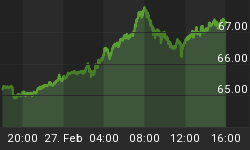Big potential changes south of the border. Mexican President-elect Enrique Pena Nieto has announced that he wants increased private investment in the nation's energy industry.
Will this include Mexican state oil company Petroleos Mexicanos, more familiarly known as Pemex?
The question is significant for the U.S.
Mexico is, according to the U.S. Energy Information Administration, now America's second largest source of imports. Of the United States' total crude oil imports averaging 9,033 thousand barrels per day (tbpd), Mexico provides 1,319 tbpd, exceeded only by Canada with 2,666 tbpd.
No, says Pena Nieto. Speaking to reporters in Ottawa last month, Nieto said, "I have publicly talked about Mexico's need to open ourselves up to the participation of the private sector in the energy sector, however this doesn't mean privatizing state run companies. I hope that this will happen with investments in Pemex but we can't postpone the benefits that Mexicans deserve to get through energy development."
Following a lunch with Canadian Prime Minister Stephen Harper, Pena Nieto told reporters, " Clearly, if we evaluate Mexico's energy potential, it will require more infrastructure development and investment for exploration and exploitation of this important resource, and eventually, for refining."
The upside for Mexicans? The country's constitution stipulates that the nationn's oil and gas in Mexico belongs to the Mexican people, and Pemex is the only company allowed to develop it.
On a national scale this leaves Mexico without energy captains of industry or private oil companies, but bereft of foreign investment, technology and expertise.
And the sad reality is that Pemex oil production is in decline , from 2006 Pemex's average daily oil output was 3.3 million barrels per day, but in 2011, just 2.54 million bpd.
On the plus side, last month Pemex announced the discovery of a field 16 miles from Villahermosa, Tabasco, that may contain reserves of 500 million barrels of crude oil. In any case, Pena Nieto is moving quickly to reorganize Pemex . Pena Nieto has appointed energy secretary Joaquín Coldwell, president of the National Executive Committee of the PRI to replace current Pemex president Jordy Herrera. Pena Nieto is pressing forward on reforming the country's energy sector, in order to attract foreign investment. Mexican energy analysts believe that foreign capital could be crucial to reviving Pemex's declining oil output, sharing the profit on private projects for exploration and production in deep waters as well as allowing foreign private capital to participate in the new business of developing new unconventional shale gas and shale oil reserves.
But Pena Nieto's efforts to open Mexico's closed energy sector still face an uphill struggle, as any real energy reform would require Constitutional changes, which have stymied previous governmental efforts.
Still change is in the air, as Nieto and leaders of Mexico's three largest political parties have agreed to work toward allowing competition into some of Pemex's operations, as well as revising mining royalty agreements. Nieto signed a document stating that Mexico will make "the necessary reforms to create a competitive environment in the economic processes of refining, petrochemical, and transportation of hydrocarbons."
As Mexico is currently the world's No. 7 oil producer, the implications of Nieto's efforts are significant.
But U.S. oil companies operating in the Gulf of Mexico might have competition for Pemex assets. Four months ago China's State-owned China National Offshore Oil Corp. proposed buying Canada's Nexen Inc. (NYSE:NXY), paying roughly $15.1 billion for Nexen Inc.'s common and preferred shares for Nexen's worldwide operations including the North Sea, Colombia and the Gulf of Mexico. The Gulf of Mexico concessions from the U.S. government are the potential deal breaker for CNOOC, so, should other operations there arise, then America's oil companies can likely expect some eastern competition.
Source: http://oilprice.com/Energy/Crude-Oil/Mexico-to-Privatize-State-Oil-Company-Pemex.html
By. John C.K. Daly of Oilprice.com - the No.1 source for oil prices















